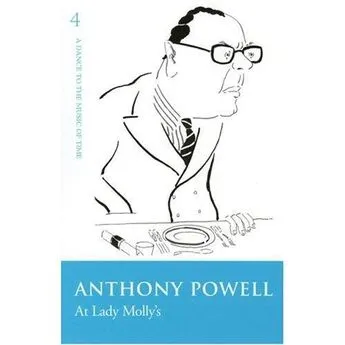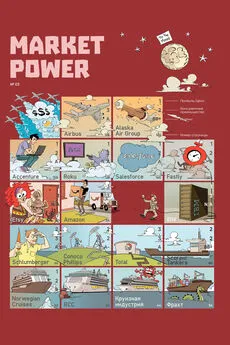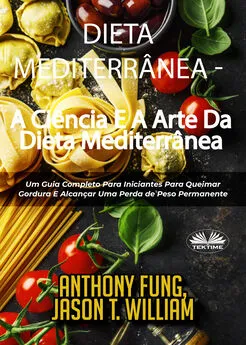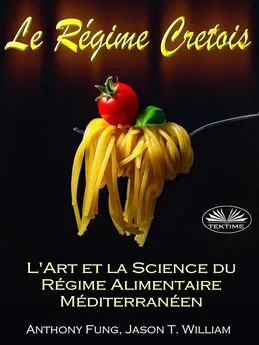Anthony Powell - A Buyers Market
- Название:A Buyers Market
- Автор:
- Жанр:
- Издательство:Arrow
- Год:2005
- ISBN:нет данных
- Рейтинг:
- Избранное:Добавить в избранное
-
Отзывы:
-
Ваша оценка:
Anthony Powell - A Buyers Market краткое содержание
Anthony Powell's universally acclaimed epic A Dance to the Music of Time offers a matchless panorama of twentieth-century London. Now, for the first time in decades, readers in the United States can read the books of Dance as they were originally published-as twelve individual novels-but with a twenty-first-century twist: they're available only as e-books. The second volume, A Buyer's Market (1952), finds young Nick Jenkins struggling to establish himself in London. Amid the fever of the 1920s, he attends formal dinners and wild parties; makes his first tentative forays into the worlds of art, culture, and bohemian life; and suffers his first disappointments in love. Old friends come and go, but the paths they once shared are rapidly diverging: Stringham is settling into a life of debauchery and drink, Templer is plunging into the world of business, and Widmerpool, though still a figure of out-of-place grotesquerie, remains unbowed, confident in his own importance and eventual success. A Buyer's Market is a striking portrait of the pleasures and anxieties of early adulthood, set against a backdrop of London life and culture at one of its most effervescent moments.
A Buyers Market - читать онлайн бесплатно полную версию (весь текст целиком)
Интервал:
Закладка:
Widmerpool’s presence reminded me that Margaret was cousin of the Budd who had been Captain of the Eleven one year at school; and I remembered the story Stringham had told me, years before, of Widmerpool’s pleased acceptance — delight almost — on being struck in the face with a banana thrown by that comparatively notable cricketer. I could not help toying with the fantasy that some atavistic strain, deep-seated in the Budd family, might cause Margaret to assail Widmerpool in similar manner; perhaps later in the evening when dessert, tempting as a missile, appeared at the Walpole-Wilson’s table. Such a vision was improbable to an almost infinite degree, because Margaret was the kindest, quietest creature imaginable; really, I think, almost wholly unaware, in gentle concentration on herself, of the presence of most of the people moving about her. Even her laughter was rare, and its audible provocation before dinner that evening by his strokes in the air with the shovel did Pardoe credit.
From a girl’s point of view, there was no doubt something to be said for considering Pardoe the most interesting person present that evening. He had recently inherited a house on the Welsh Border (Jacobean in architecture, though with more ancient historical associations going back to the Wars of the Roses), together with enough money, so it was said, to “keep up” the estate. He was an agreeable, pink-faced ensign, very short, square, and broad-shouldered, with a huge black moustache, brushed out so forcibly that it seemed to be false and assumed for a joke. Such affluent young men were known to have a tendency to abandon dances and frequent night-clubs. Pardoe, however, was still available, so it appeared; no one could tell for how long. Unlike Archie Gilbert, he had a great deal to say for himself — though his newly acquired possessions made small-talk scarcely necessary — and, as he modestly treated his own appearance as a matter for laughter, the moustache was a considerable asset in his anecdotes. He had at last abandoned the shovel, and, mildly interested in music had become engaged in some operatic argument with Miss Manasch. To this discussion Sir Gavin, from the background where he had been hovering, his moustache bristling more than ever, now cut in with the emphatic words:
“No one could sing it like Slezak.”
“Did you ever hear him in Lohengrin ?” demanded Pardoe, taking the ends of his own moustache with both hands, as if about to tear it off and reveal himself in a new identity.
“Many a time and oft,” said Sir Gavin, defiantly. “But what was that you were saying about ldomeneo ?”
All three of them embarked clamorously on a new musical dispute. The rest of us chatted in a desultory way. Barbara arrived late. She was wearing her gold dress that I knew of old did not suit her; and that spirit of contradiction that especially governs matters of the heart caused the fact that she was not looking her best to provoke in me a stab of affection. Even so, I was still able to wonder whether the situation between us — between myself and her, would perhaps be more accurate — remained quite unchanged; and, as I let go of her small cluster of fingers — each one of which I was conscious of as a single entity while I held her hand — I thought that perhaps that night I should not, as in past months, experience the same recurrent torments as she danced with other men. As soon as she had come into the room, Widmerpool skirted the sofa and made towards her, leaving me with the impression that I might in some manner have appeared unfriendly to him after our comparative intimacy in France, I decided to try to correct this apprehension, should it exist, later in the evening when suitable opportunity might arise.
The minutes passed: conversation flagged. The Louis Seize clock standing on a wall-bracket gave out a threatening tick-tock. One of the male guests had still not yet turned up. In those days, at that sort of party, there were no drinks before dinner; and, while Eleanor told me about her Girl Guides, the evening sun deflected huge golden squares of phosphorescent colour (spread rather in the manner advocated by Mr. Deacon, giving formal juxtaposition to light and shade) against the peacock-green shot-silk shadows of the sofa cushions. Outside, the detonation of loudly-slammed taxi doors, suggesting the opening of a cannonade, had died down. In place of those sounds some cats were quarrelling, or making love, in the gardens running the length of the square. I began to long for the meal to begin. After total silence had fallen on the room for the second time, Lady Walpole-Wilson, apparently with an effort, for her lips faltered slightly when she spoke, came to a decision to await the late-comer no further.
“Let’s go down in a troop,” she said, “and — as Mr. Tompsitt is so unpunctual — not bother about ‘taking in’. I really do not think we can delay dinner any longer.”
In speaking to each other the Walpole-Wilsons were inclined to give an impression that they were comparative strangers, who had met for the first time only a week or two before, but at this remark her husband, no doubt wanting food as much as — perhaps even more than — the rest of those present, replied rather gruffly: “Of course, Daisy, of course.”
He added, without any suggestion of complaint — on the contrary, if anything, with approbation: “Young Tompsitt is always late.”
The news that Tompsitt had been invited would once have filled me with dismay. Even at that moment, sudden mention of his name caused an instinctive hope that his absence was due to illness or accident, something that might prevent him from putting in any appearance at all, preferably grave enough to exclude him from dances for many months: perhaps for ever. He was one of various young men moving within Barbara’s orbit whose relationship with her, though impossible to estimate at all precisely, was yet in a general way disturbing for someone who might have claims of his own to put forward in that quarter. In that respect Tompsitt’s connection was of a particularly distasteful kind in that Barbara evidently found him not unattractive; while his approach to her, or so it seemed to me, was conditioned entirely by the ebb and flow of his own vanity: no inconsiderable element when gauged at any given moment, though laying a course hard for an unsympathetic observer to chart. That is to say he was obviously flattered by the fact that Barbara found him, apparently, prepossessing enough; and, at the same time, not sufficiently stirred within himself to spend more than comparatively brief spells in her company, especially when there were other girls about, who might be supposed, for one reason or another, to represent in his eyes potentially superior assets.
That was what I used, perhaps unjustly, to reflect; at the same time having to admit to myself that Tompsitt’s attitude towards Barbara posed, from my own point of view, a dilemma as to what, short of his own bodily removal, would constitute a change for the better. His relative lack of enthusiasm, though acceptable only with all kinds of unpalatable reservations, had, in its way, to be approved; while apprehension that his feelings towards Barbara might suddenly undergo some violent emotional stimulation was — or had certainly been until that evening — an ever present anxiety. At last, however, I felt, anyway on second thoughts, fairly indifferent as to whether or not Tompsitt turned up. Inwardly I was becoming increasingly convinced of this, and I might even have looked forward to Tompsitt’s entry if there had been serious threat of dinner being further delayed on his account.
In the dining-room I found myself sitting at the oval-ended table between Barbara and Anne Stepney, the second of whom was on Sir Gavin’s right. The Walpole-Wilsons defied prevailing mode by still employing a table-cloth, a preference of Sir Gavin’s, who prided himself on combining in his own home tastes of “the old school” with a progressive point of view in worldly matters. The scented geranium leaf usually to be found floating in the finger-bowls could be attributed to his wife’s leaning towards a more exotic way of life. Beyond Barbara was Archie Gilbert, probably placed on Lady Walpole-Wilson’s left to make up for having Tompsitt — or rather an empty chair, where in due course he would sit, if he had not forgotten the invitation — on her right. Tompsitt, a protégé of Sir Gavin’s, was not greatly liked either by Eleanor or her mother.
This chasm left by Tompsitt divided Margaret Budd, who had Widmerpool on her other side, from her hostess. Widmerpool’s precise channel of invitation to the house was still obscure, and the fact that he himself seemed on the whole surprised to find himself dining there made his presence even more a matter for speculation. He had been placed next to Eleanor, who had presumably been consulted on the subject of seating accommodation at the dinner table, though he seemed by his manner towards her to know her only slightly, while she herself showed signs, familiar to me from observing her behaviour on past occasions, of indifference, if not dislike, for his company. Barbara had been the only member of the party greeted by him as an old acquaintance, though she had done no more than wring him rather warmly by the hand when she arrived, quickly passing on to someone else, at which he had looked discouraged. Pardoe sat between Eleanor and Miss Manasch — who brought the party round once more to Sir Gavin. The table had perhaps not been easy to arrange. Its complications of seating must have posed problems that accounted for Lady Walpole-Wilson’s more than usually agitated state.
“There does not seem any substantial agreement yet on the subject of the Haig statue,” said Widmerpool, as he unfolded his napkin. “Did you read St. John Clarke’s letter?”
He spoke to Eleanor, though he had glanced round the table as if hoping for a larger audience to hear his views on the matter. The subject, as it happened, was one upon which I knew Eleanor to hold decided opinions, and was therefore a question to be avoided, unless driven to conversational extremities, as she much preferred statement to discussion. The fact of broaching it was yet another indication that Widmerpool could not have seen a great deal of her at all recently.
“Surely they can find someone to carve a horse that looks like a horse.”
She spoke with truculence even at the outset.
“The question, to my mind,” said Widmerpool, “is whether a statue is, in reality, an appropriate form of recognition for public services in modern times.”
“Don’t you think great men ought to be honoured?” Eleanor asked, rather tensely. “I do.”
She clenched her lips tightly together as if prepared to contest the point to die death — with Widmerpool or anyone else.
“Nobody — least of all myself — denies the desirability of honouring great men,” he said in return, rather sharply, “but some people think the traffic problem — already severe enough in all conscience — might be adversely affected if any more space is taken up by monuments in busy thoroughfares.”
“I can’t see why they can’t make a model of a real horse,” said Barbara. “Couldn’t they do it in plaster of Paris or something. Don’t you think?”
This last question, propitiatory in tone, and addressed in a fairly low voice to myself, could still make me feel, for reasons quite subjective in origin, that there might be something to be said for this unconventional method of solving what had become almost the chief enigma of contemporary aesthetic.
“Need there be a horse?” asked Lady Walpole-Wilson, putting a brave face on the discussion, though evidently well aware, even apart from Eleanor’s potential pronouncements on the subject, of its manifold dangers.
Читать дальшеИнтервал:
Закладка:









